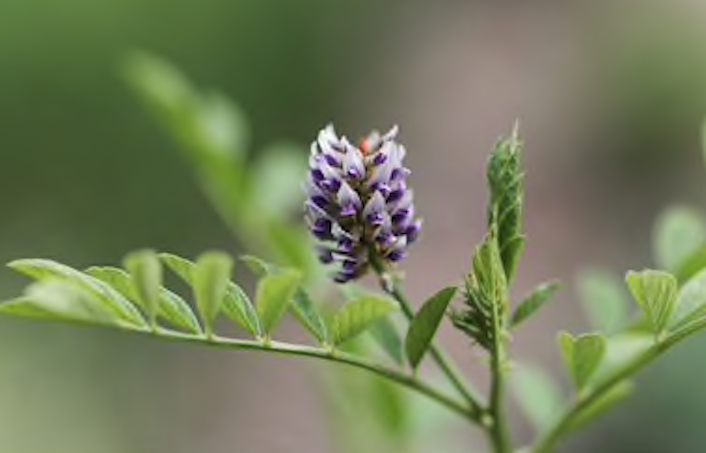With the hustle and bustle of the Holiday Season, I wanted to share an herb with adaptogenic qualities this month. Adaptogenic herbs are known for their ability to help the body resist and recover from stress, and can increase energy and overall vitality. Glycerrhiza is an excellent herb to combat all those cold and flu viruses you may come into contact with at your Holiday gatherings. I use this herb quite frequently, as it is generally tolerated quite well, and very effective. Also, it is very pleasant tasting and kids really enjoy it!
Qualities: Adrenal modulator (adaptogenic), Anti-viral, Anti-bacterial, Anti-inflammatory, Immunomodulator, hepatoprotective, demulcent, expectorant, antioxidant, estrogenic.
Uses: Exhaustion due to adrenal stress, chronic fatigue syndrome, coughs, bronchial irritation, mononucleosis, polycystic ovarian syndrome.
Description: Sweet root that is pleasant to the palate. Generally taken in the form of shredded or powdered dried root by means of capsule, tea, or extract. This herb has a long history for strength and long life in Chinese medicine. Sweet of the Pharaohs of Ancient Egypt. Glycerrhiza was also carried by armies of Alexander to allay thirst, and as a medicine. It’s many constituents including volatile oil, coumarins, chalcones, triterpenes, and flavonoids enable it to be extremely versatile, with many labeling it as “The Universal Herb.”
Glycerrhiza glabra’s ability to support endocrine function through it’s mineral corticoid properties and effects, make it an excellent herb of choice for people with adrenal fatigue, poly-cystic ovarian syndrome, PMS, and heavy periods. Glycerrhiza is also well known for it’s soothing effect on inflamed mucous membranes of the throat, lungs, stomach and intestines. These properties make it an excellent herb of choice for those with coughs, throat and bronchial irritation, gastric and duodenal ulcers, and urinary tract infections.
Glycerrhiza is an amazing herb with an abundance of clinical uses, as well as research. Recent research holds promise in its ability to assist with autoimmune conditions, depression, and improved memory.
Warnings: Glycerrhiza can cause renal sodium retention and potassium loss. These effects can vary widely, and may even be desirable in certain conditions. However, it should not be taken by people with high blood pressure, congestive heart failure, and kidney failure. People taking pharmaceutical medications for these conditions, or for any other serious illness, should always consult their prescribing doctor before taking this herb.

References:
Decio Armani, Mee Jung Matarello, et al., Licorice reduces serum testosterone in healthy women, Steroid. Volume 69, Issues 11-12, October-November 2004, pages 763-766.
Mori, Sakai, Suzuki, et. al., Effects of Glycyrrhizin (SNMC: Stronger Neo-Minophagen C) in Hemophilia Patients with HIV Infection. J. of Naturopathic Med. 1993; 4:2-9.
Hattori, Ikematsu, et. al., Preliminary Evidence for Inhibitory Effect on Glycyrrhizin on HIV Replication in Patients with AIDS. Antiviral Res. 1989; 11:255-262.
Tilgner, S. (2009) Herbal Medicine From the Heart of the Earth. Pleasant Hill, OR: Wise Acres, LLC.
Bartram, T. (1995) Bartram’s Encyclopedia of Herbal Medicine. London, UK: Robinson Publishing Ltd.
Brinker, F. (2010) Herbal Contraindications and Drug Interactions plus Herbal Adjuncts with Medicines. Sandy, OR: Fourth Lloyd Productions, LLC.
Hoffman, D. (2003) Medical Herbalism: The Science and Practice of Herbal Medicine. Rochester, VT: Healing Arts Press.
Caution: Herbal products contain phytochemicals in potencies that are not ordinarily found in typical food sources and may produce a powerful physiologic effect, therefore indiscriminant use of any herbal product is not recommended except under the direction of a trained health care professional. In addition to the phytochemical effect, there may be drug interactions that may produce reactions or interfere with the efficacy of prescription medication.
